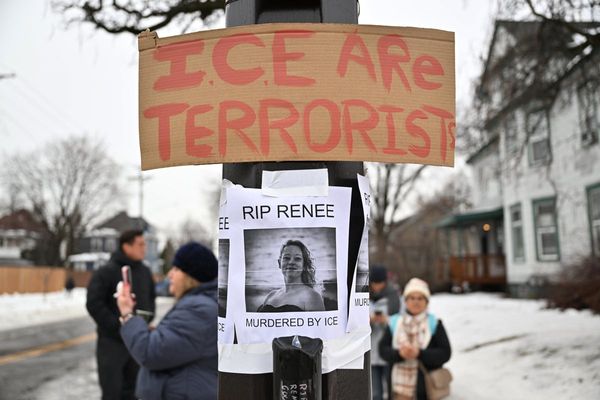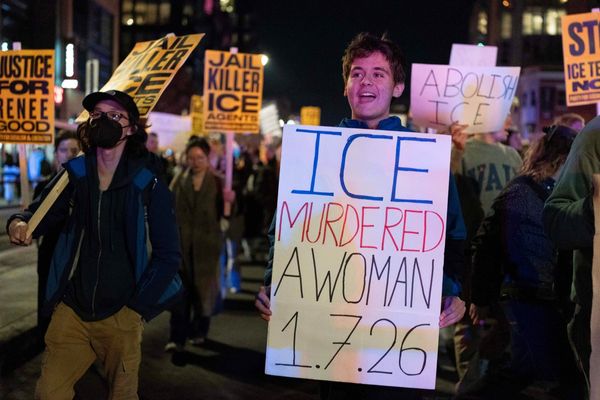
What are the stock market holidays for 2026? This handy guide to when the stock market and bond market holidays fall throughout the calendar year will help you answer that question.
There is a full slate of holidays for the new year, so it's worth keeping informed on when they are scheduled.
Stock market holiday schedule
The NYSE and Nasdaq typically observe 10 stock market holidays each year. Here's what will be observed in 2026:
- New Year's Day – Thursday, January 1
- Martin Luther King, Jr. Day – Monday, January 19
- Presidents' Day – Monday, February 16
- Good Friday – Friday, April 3
- Memorial Day – Monday, May 25
- Juneteenth – Friday, June 19
- Independence Day – Friday, July 3*
- Labor Day – Monday, September 7
- Thanksgiving Day – Thursday, November 26
- Christmas Day – Friday, December 25
* Note: Independence Day, or July 4, falls on a Saturday in 2026, so the stock market will be closed in observance of the holiday on Friday, July 3. It will also close early at 1 pm on Thursday, July 2. (All times featured here are in Eastern Standard Time unless otherwise indicated.)
And sometimes, the stock market will close early in the days preceding or following market holidays.
For example, the NYSE and Nasdaq close at 1 pm on July 3 (if both it and July 4 fall on a weekday), the day after Thanksgiving, also known as Black Friday, and on Christmas Eve (if the holiday falls on a weekday).
Below is the full stock market holiday schedule for 2026:
2026 stock market holidays
Date |
Holiday |
NYSE |
Nasdaq |
Thursday, January 1 |
New Year's Day |
Closed |
Closed |
Monday, January 19 |
Martin Luther King, Jr. Day |
Closed |
Closed |
Monday, February 16 |
Presidents' Day/Washington's Birthday |
Closed |
Closed |
Thursday, April 2 |
Maundy Thursday |
Open |
Open |
Friday, April 3 |
Good Friday |
Closed |
Closed |
Friday, May 22 |
Friday Before Memorial Day |
Open |
Open |
Monday, May 25 |
Memorial Day |
Closed |
Closed |
Friday, June 19 |
Juneteenth National Independence Day |
Closed |
Closed |
Thursday, July 2 |
Thursday before Independence Day |
Early close |
Early close |
Friday, July 3 |
Monday Before Independence Day |
Closed |
Closed |
Monday, September 7 |
Labor Day |
Closed |
Closed |
Monday, October 12 |
Columbus Day/Indigenous Peoples' Day |
Open |
Open |
Wednesday, November 11 |
Veterans Day |
Open |
Open |
Thursday, November 26 |
Thanksgiving Day |
Closed |
Closed |
Friday, November 27 |
Day After Thanksgiving/Black Friday |
Early close |
Early close |
Thursday, December 24 |
Christmas Eve |
Early close |
Early close |
Friday, December 25 |
Christmas Day |
Closed |
Closed |
Thursday, December 31 |
New Year's Eve |
Open |
Open |
Bond market holiday schedule
The bond markets observe the same 10 holidays as the stock market does, as well as two additional holidays. Here's where they fall in 2026:
- Columbus Day – Monday, October 12
- Veterans Day – Wednesday, November 11
The bond markets also observe several early closings at 2 pm each year. This is when those occur in 2026:
- The Thursday before Good Friday – Thursday, April 2
- The Friday before Memorial Day – Friday, May 22
- The day preceding Independence Day – Thursday, July 2*
- Black Friday, or the day after Thanksgiving – Friday, November 27
- Christmas Eve – Thursday, December 24
- New Year's Eve – Thursday, December 31
* Note: Independence Day, or July 4, falls on a Saturday in 2026, so the bond market will be closed in observance of the holiday on Friday, July 3. It will also close early at 2 pm Eastern Standard Time on Thursday, July 2.
Here is the full bond market holiday schedule for 2026:
2026 bond market holidays
Date |
Holiday |
Bond Markets |
Thursday, January 1 |
New Year's Day |
Closed |
Monday, January 19 |
Martin Luther King, Jr. Day |
Closed |
Monday, February 16 |
Presidents' Day/Washington's Birthday |
Closed |
Thursday, April 2 |
Maundy Thursday |
Early close |
Friday, April 3 |
Good Friday |
Early close |
Friday, May 22 |
Friday Before Memorial Day |
Early close |
Monday, May 25 |
Memorial Day |
Closed |
Friday, June 19 |
Juneteenth National Independence Day |
Closed |
Thursday, July 2 |
Thursday before Independence Day |
Early close |
Friday, July 3 |
Day before Independence Day |
Closed |
Monday, September 7 |
Labor Day |
Closed |
Monday, October 12 |
Columbus Day/Indigenous Peoples' Day |
Closed |
Wednesday, November 11 |
Veterans Day |
Closed |
Thursday, November 26 |
Thanksgiving Day |
Closed |
Friday, November 27 |
Day After Thanksgiving/Black Friday |
Early close |
Thursday, December 24 |
Christmas Eve |
Early close |
Friday, December 25 |
Christmas Day |
Closed |
Thursday, December 31 |
New Year's Eve |
Early close |
When it comes to the stock and bond markets alike, if a holiday falls on a weekend, market closures are dictated by two rules:
- If the holiday falls on a Saturday, the market will close on the preceding Friday.
- If the holiday falls on a Sunday, the market will close on the following Monday.
What are the stock and bond market trading hours?
For those wanting answers to other questions, like what time does the market open, regular stock market trading hours for the New York Stock Exchange (NYSE) and Nasdaq Stock Market are 9:30 am to 4 pm on weekdays.
Bond markets usually trade between 8 am and 5 pm.
The stock markets close at 1 pm on early closure days. Bond markets close early at 2 pm.
Many folks might wonder why the stock market offers such limited hours when there are certainly people who want to buy and sell at all times of the day.
One of the main reasons for this is "liquidity," or how much buying and selling is going on at a given time.
The more liquidity in a particular security, the likelier you are to get a fair price on it; the less liquidity, the more likely you might have to settle for a less-than-ideal price to finish a transaction.
"For the market to function effectively, you need buyers and sellers," says Charles Sizemore, principal of Sizemore Capital Management. "This is why the stock market has set hours that happen to correspond to the East Coast workday. You want the maximum number of traders buying and selling at the same time."
If you were at an estate auction selling your grandmother's antiques, you'd want a lot of bidders there. It's the same rationale in the stock market.
And there is trading that is done outside of these regular hours. On days with a regular session, for instance, there is "pre-market" trading. This occurs before the market, and while hours vary, they can extend as early as 4 am and run until the opening bell rings at 9:30 am.
There is also "after-hours" trading, which happens after the market closes and typically runs from 4 pm to 8 pm. Meanwhile, the Nasdaq has submitted paperwork to the Securities and Exchange Commission to allow for 24-hour trading, while some online platforms offer "overnight trading," which gives investors the ability to trade around the clock.
But just because you can trade outside of regular stock market trading hours doesn't necessarily mean you should.
Investors should be aware that volume and liquidity tend to be lower in pre-market, after-hours and overnight trading.
Temporary market stoppages
The stock market rarely closes unexpectedly, but so-called circuit breakers do occasionally trigger temporary trading halts.
Circuit breakers were first introduced after the Black Monday crash of October 1987. The Dow dropped almost 23% in a single session, which stands as a record to this day.
The most recent circuit breaker was triggered in March 2020 at the start of the COVID-19 pandemic.
Circuit breakers are intended to curb panic selling. Like calling a timeout in sports, a temporary pause in trading allows market participants to catch their breath, though it doesn't necessarily keep stocks from declining once trading resumes.
There are three levels of circuit breakers tied to how steeply the market declines:
- A Level 1 market-wide circuit breaker is tripped if the S&P 500 falls 7% from its previous close.
- A Level 2 circuit breaker comes into effect when the market plunges 13%.
- A Level 3 circuit breaker kicks in if the market tanks 20%.
A Level 1 or Level 2 breach halts trading for a minimum of 15 minutes. A Level 3 rout halts trading for the remainder of the trading day.
Level 1 and Level 2 circuit breakers can be triggered between 9:30 am and 3:25 pm. A Level 3 breach can be triggered at any time.
Extraordinary stock market closures
The market has also shut down a smattering of times throughout history following catastrophic events.
In 2012, the New York Stock Exchange and Nasdaq closed for two days due to damage caused by Hurricane Sandy.
And the attacks on the World Trade Center and Pentagon prevented the market from opening on September 11, 2001, and the exchanges remained shut until September 17.
Prior to that, you have to go back to World War I for an example of the stock market shutting down. The outbreak of hostilities in Europe led The New York Stock Exchange to close up shop from July 31 to November 28, 1914.
The market went dark only two other times in its history. The NYSE closed for 10 days during the Panic of 1873; and it took a week off trading to mourn the assassination of President Abraham Lincoln in 1865.
Additionally, markets will typically close when a former president dies. They were most recently shuttered in January 2025 for a national day of mourning and a state funeral for former President Jimmy Carter.
Data provided by the NYSE and SIFMA.







